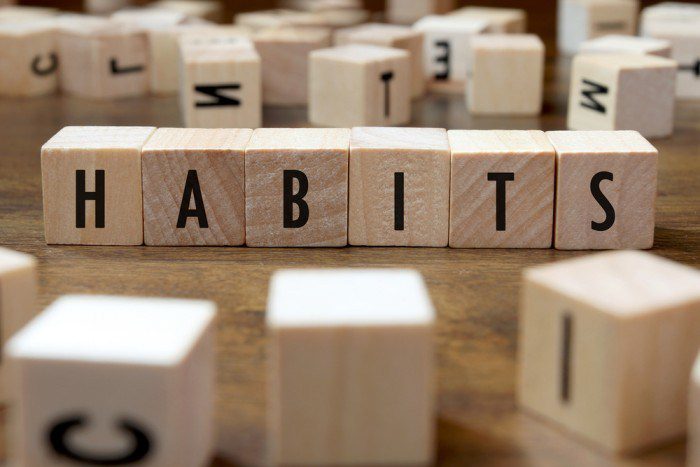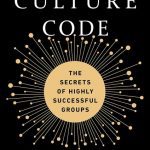Aristotle once quipped, “We are what we repeatedly do; excellence then is not an act but a habit. You do not need to be great to start, but you need to start to be great. We get rewarded in public for what we refine and practice in private. We are what we do when no one is watching; we develop character, integrity, and strength by following through with our commitments day in and day out.
Earl Nightingale once said: “Success is the progressive realization of a worthwhile goal.” We all have different goals in life; one of the greatest things about successful people is that their success leaves clues that we can all learn from. One of the major traits most of them exhibit is a bias for action. Former USA President John F. Kennedy commented, “There are risks and costs to action, but they are far less than the long-range risks of comfortable inaction.
American Author and Speaker, Darren Hardy in his book : The Compound Effect writes:
small, seemingly insignificant steps completed consistently over time will create a radical difference.
There’s a story about a man riding a horse, galloping quickly. It appears that he’s going somewhere very important. A man standing along the roadside shouts, “Where are you going?” The rider replies, “I don’t know. Ask the horse!” This is the story of most people’s lives; they’re riding the horse of their habits, with no idea where they’re headed. It’s time to take control of the reins, and move your life in the direction of where you really want to go.
We’re born with instincts, of course, but no habits at all. We develop them over time. Beginning in childhood, we learned a series of conditioned responses that led us to react automatically (as in, without thinking) to most situations.
With enough practice and repetition, any behavior, good or bad, becomes automatic over time. That means that even though we developed most of our habits unconsciously (by modeling our parents, responding to environmental or cultural associations, or creating coping mechanisms), we can consciously decide to change them. It stands to reason that since you learned every habit you have, you can also unlearn the ones that aren’t serving you well.
Nobody intends to become obese, go through bankruptcy, or get a divorce, but often (if not always) those consequences are the result of a series of small, poor choices.
One of the keys to achieving a goal is to decide what it is you want, commit to achieving the goal, and executing the plan (Decide, Commit and Execute). In the past 12 months., I have been experimenting with Micro-Habits: They are habits/actions taken in stretches of 10-30-60 minutes daily. Here are some of the habits have been able to get better at in the past 365 days through this strategy.
Laying Bed
The first thing I do when I wake up is to lay the bed properly. I understood this principle from Admiral William H. McRaven, Ninth Commander of the US Special Operations Command, who in his 2014 University of Texas Commencement Speech advised:
Every morning in basic SEAL training, my instructors, who at the time were all Vietnam veterans, would show up in my barracks room and the first thing they would inspect was your bed. If you did it right, the corners would be square, the covers pulled tight, the pillow centered just under the headboard and the extra blanket folded neatly at the foot of the rack — that’s Navy talk for bed.
It was a simple task — mundane at best. But every morning we were required to make our bed to perfection. It seemed a little ridiculous at the time, particularly in light of the fact that were aspiring to be real warriors, tough battle-hardened SEALs, but the wisdom of this simple act has been proven to me many times over.
If you make your bed every morning you will have accomplished the first task of the day. It will give you a small sense of pride, and it will encourage you to do another task and another and another. By the end of the day, that one task completed will have turned into many tasks completed. Making your bed will also reinforce the fact that little things in life matter. If you can’t do the little things right, you will never do the big things right.
“And, if by chance you have a miserable day, you will come home to a bed that is made — that you made — and a made bed gives you encouragement that tomorrow will be better.”
Starting the day by laying the bed makes me feel confident by completing a task, and that energy spills over throughout the day; I try to complete more tasks.
Calm Meditation
The Calm App is a great app that contains a lot of sleep, relaxation, and meditation content. The app has many meditation exercises that are usually in series format, such as 7 Days of calming Anxiety, Train your Mind with Lebron James, How to Meditate, 7 Days of Calm, among others. I try to perform a series per week, one session per day, and most sessions last for like 8-10 minutes. The brevity of the sessions makes the task easy to complete. Since I have started using the Calm App, I have been taking more deep breaths, worrying less, and getting better with self-care.
“If you are depressed you are living in the past. If you are anxious you are living in the future. If you are at peace you are living in the present.” – Lao Tzu
After meditating, I also use the calm app for an 8 minutes wake up stretch which is designed to make the user feel open, energized and uplifted with the standing sequence.
Write out my Goals for the Day
After the stretch, I write out my goals for the day, I schedule time blocks for the activities I intend to achieve for the day. I try to order my priorities for the day and I also reflect on ways to improve from the previous days entry.
The key is not to prioritize what’s on your schedule, but to schedule your priorities.- Stephen Covey
Fill out the Five-Minute Gratitude Journal
After taking my bath and brushing my teeth, the next task is to fill the 5-Minute Gratitude Journal which is a journal for keeping and reflecting on things I am grateful for, what would make the day great, daily affirmations and reflecting on ways to make the day better.
“Gratitude makes sense of our past, brings peace for today, and creates a vision for tomorrow.” – Melody Beattie
A 2003 study by Emmons and McCullough found that keeping a daily gratitude journal leads to better sleep. reductions of physical pain, a greater sense of well-being, and a better ability to handle change.
I started using the Five-Minute Gratitude Journal gratitude journal in early 2020 and it has been very transformational in my outlook of life from helping to gain perspective during tough times and helping to reflect on the journey during the great times.
I try to read 100 books yearly, one of the ways have been able to achieve reading at least 80+ books in a year is as a result of the power of micro-habits. Every day, I schedule reading into my calendar and I take small time chunks to read and listen to audiobooks. I read during my break time from work and also before I sleep at night. I probably use 60-70% of my time reading, as I agree with Mark Twain who noted that: “What gets us into trouble is not what we don’t know. It’s what we know for sure that just ain’t so.”
Charlie Munger in his 2007 USC Law School Commencement Address, advised:
Wisdom acquisition is a moral duty. It’s not something you do just to advance in life. As a corollary to that proposition which is very important, it means that you are hooked for lifetime learning. And without lifetime learning, you people are not going to do very well. You are not going to get very far in life based on what you already know. You’re going to advance in life by what you learn after you leave here.
If you take Berkshire Hathaway, which is certainly one of the best-regarded corporations in the world and may have the best long-term investment record in the entire history of civilization, the skill that got Berkshire through one decade would not have sufficed to get it through the next decade with the achievements made. Without Warren Buffett being a learning machine, a continuous learning machine, the record would have been absolutely impossible.
I am striving to be a learning machine-like Warren Buffet, in the process become a better version of myself.
Listening to Audiobooks/Podcasts
I try to listen to audiobooks daily with any spare time, like when I am waiting in line in the bank, during commutes, working, during a road jog, etc. I find listening to audiobooks and podcast very enjoyable, as I get different perspectives from various topics and interests.
Daily Learning Goal
I am presently learning the Python Programming language, and one of the strategies I have been using it to build momentum by studying/practicing for at least one hour a day. The compound effect of using this strategy seems slow, but I believe by trusting the process, I would figure it out. I also use the micro-habit strategy to learn different skillsets and technologies I am exploring, such as WordPress, DevOps, Python, CyberSecurity through platforms such as Linkedin Learning, Qwik Labs, PluralSight, Linux Academy, Oreilly Online etc. In any of these platforms, I use the same strategy 60 minutes at a time. Good, better, best. Never let it rest. Until your good is better and your better is best.
In his book, Tiny Habits: The Small Changes That Change Everything, American Social Scientist and Author BJ Fogg writes on the power of forming tiny habits:
Building habits and creating positive change can be easy—if you have the right approach. A system based on how human psychology really works. A process that makes change easier. Tools that don’t rely on guesswork or faulty principles. In order to design successful habits and change your behaviors, you should do three things:
- Stop judging yourself.
- Take your aspirations and break them down into tiny behaviors.
- Embrace mistakes as discoveries and use them to move forward.
“So if you haven’t gotten off the couch in a year, don’t start with seven minutes of strenuous activity. Start tiny instead. Shore up the weakest link in your Ability Chain by making your new workout habit radically easy to do. Scale back to doing one wall push-up. Just one. When you run into a setback—a cold, for instance—you can still manage to do one wall push-up, stuffy nose and all. By going tiny, you create consistency; by staying tiny, you get your new habit firmly rooted.”
“Imagine a big plant with small roots. When a powerful wind kicks up, the big plant might topple over because it’s not held firmly in place. And that’s how habit formation works. If you start with a big behavior that’s hard to do, the design is unstable; it’s like a large plant with shallow roots. When a storm comes into your life, your big habit is at risk. However, a habit that is easy to do can weather a storm like flexible sprouts, and it can then grow deeper and stronger roots.”
The micro-habits result do not usually show up immediately. Still, you have to trust the process, see the end in my and the compound effect of the momentum built, progress achieved would eventually manifest with time. The key is to stay motivated and consistently execute day in a day out. The journey of a thousand miles begins with a single step. Just Do it! You’ve got this, instead of procrastinating going to the gym, use the Calm Morning Wake-Up to stretch, instead of been overwhelmed about reading a book, read a paragraph or chapter per day,
All the Best in your quest to get Better. Don’t Settle: Live with Passion.



1 Comment
Pingback: Book Summary – Tiny Habits: The Small Changes That Change Everything by BJ Fogg Ph.D – Lanre Dahunsi